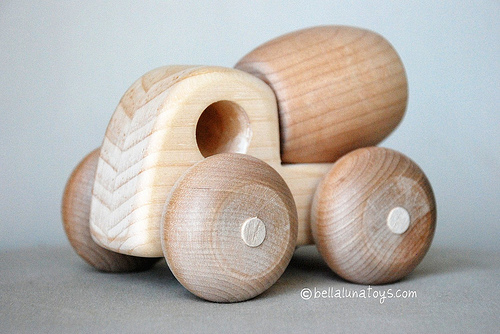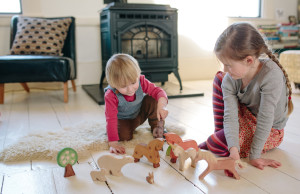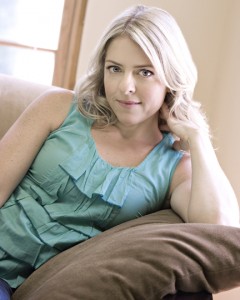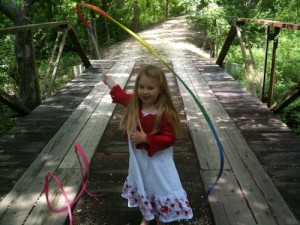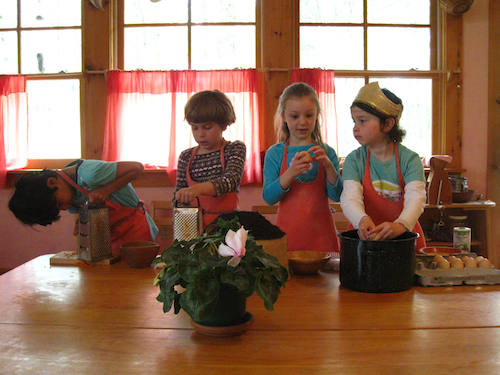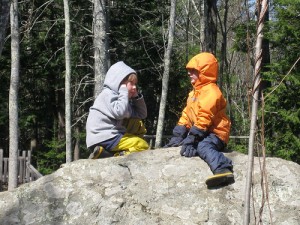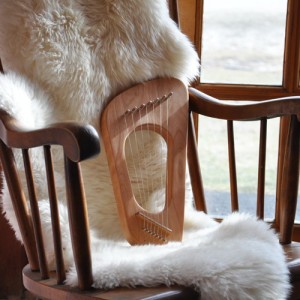We love wooden toys because they are safe, natural, and durable, but also because they are nourishing to a young child’s senses. They feel good and, with their variety of natural colors and grains, are beautiful to behold! Not only will wooden toys provide many years of play for your children, but with proper care, they will also be enjoyed by your grandchildren and great-grandchildren.
Dr. Bronner’s liquid castile soap) or a vinegar solution will keep your wooden toys safe and germ-free. Vinegar has mild disinfectant properties. Be sure to avoid bleach, detergents or abrasive cleansers, which will dry out the wood, leading to cracks and breakage, and will also lighten the surface. Use a damp cloth, soft brush or a sponge to wipe clean. It is best not to submerge wood in water (and never put it in the dishwasher).
Wood needs to have its natural moisture replenished in order to prevent it from drying out, warping or cracking. The best way to keep your wooden toys hydrated and well-nourished is with a natural oil or wax, like plain mineral oil or beeswax polish, like Bee Luna Natural Beeswax Polish. Beeswax polish is not only completely non-toxic and safe for children, but it also smells like honey, further adding to the sensory deliciousness of wooden toys!
Like all wood, wooden toys can be affected by changes in temperature and humidity. Be careful not to leave them outside overnight or for extended periods of time. Heat, sun and humidity can all affect the appearance and shape of wooden toys, and worse, lead to cracking, swelling or breakage.
With proper care and feeding, the wooden toys you purchase for your child today will be enjoyed for generations, delighting other children and families decades after the plastic toys end up sitting in the bottom of a landfill for all time.
What are your favorite wooden toys? Leave a comment and let me know!

